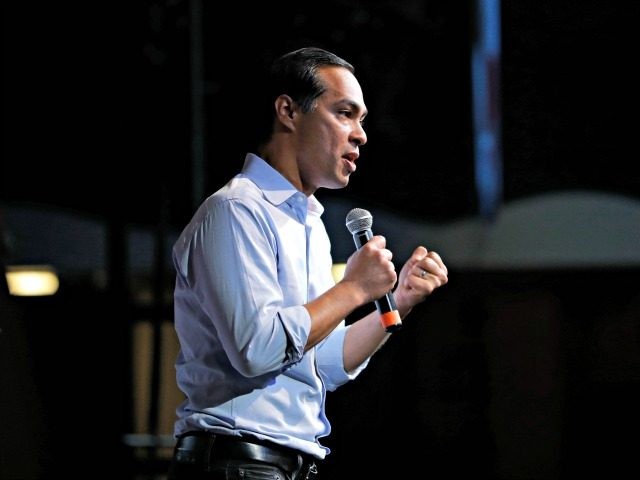Democrat presidential candidate Julian Castro said Wednesday during a CNN town hall he would institute a “carbon pollution fee” on corporations who are “industrial-scale polluters” to pay for his plans on the climate.
He declined to name specific corporate polluters, but said “there are too many to count.” That carbon pollution fee would help pay for a number of investments he would make to combat climate change, which he called the world’s “most existential threat.”
“[It] is the most existential threat to our country’s future,” Castro said. “The [United Nations] has told us that we have about 12 years to get this right, or the consequences could be catastrophic.”
He said hurricanes and floods are happening more and with greater intensity, arctic ice caps are melting, and the Amazon is on fire. “We don’t need climate scientists to tell us what we see with our own eyes,” he said.
During the town hall, Castro and other 2020 Democrat candidates laid out their plans to combat climate change, an issue popular with progressives.
Castro said his first executive order as president would be to rejoin the Paris Climate Accord, which President Trump pulled out of.
He also said he would take a series of other executive actions and propose legislation to get the United States to “net zero” emissions by 2045 by investing in wind, solar, and renewable energy, and encourage the rest of the world to get there by 2050.
He said he would also implement “a clean energy standard,” “crack down” on corporations “that violate our laws,” and prohibit fossil fuel exploration and extraction on federal lands. He said he would preserve more land for wildlife, and end oil and gas leasing on public lands.
When asked about his current view on fracking given his past support for it, Castro said he supports local community and state bans on fracking but said he has not called for an immediate ban on it. He said he would move away from it, however.
To combat the effects of rising sea levels and flooding, he said he would invest in “national disaster resilience” and “pre-disaster mitigation” to help affected communities and help folks struggling with the cost of flood insurance through subsidies and the National Flood Investment Program.
He said the worst-hit communities are often the poorest and communities of color.
“There a component of environmental justice at work here, too. Because you all know that oftentimes the first folks that get flooded out are the poorest communities, they’re often communities of color, they’re the ones who can least afford to deal with the climate crisis,” he said.
He called for civil rights legislation to address “environmental injustice” and to allow the “private right of action to file lawsuits against polluters.”

COMMENTS
Please let us know if you're having issues with commenting.